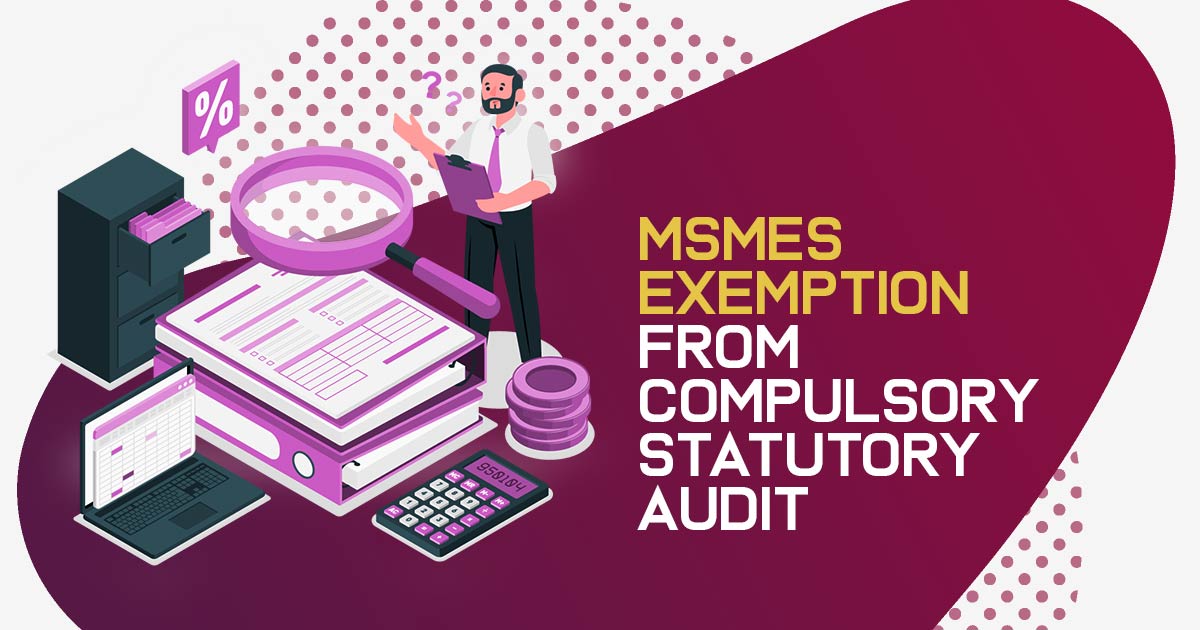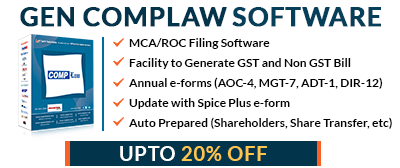
The Simplicity of Furnishing Business for MSMEs
Independent audit regulator National Financial Reporting Authority (NFRA) seeks views from the stakeholders and public on a wider note that if micro, small and medium enterprises (MSMEs), relying on some conditions and threshold must be privileged from the essential law audit beneath companies act 2013. Comments seek on a paper. NFRA notified that the law concerning the financial reporting and auditing ‘must not levy the additional weight and the cost on the entities which are regulated and also the regulatory framework must be in the ‘proportional to the size and type of the entities’ which are regulation applicable.
The Union Government Settled the NFRA in Oct 2018
NFRA builds the suggestions to the government upon the concept and cutting of the accounting and auditing scheme and standards to adopt the firms or their auditors who opt for the preliminary review upon the chief financial parameters of organizations. The examination is to be performed upon the problems concerning compliance through the statutory platform under MSMEs whose net worth is less than Rs 250 cr.
But the concern on the privilege must be given to MSMEs shall be divided. “It would be a fantastic idea if the exemption is given. Statutory audit is required these days for only bank loan purposes. But a bank statement that gives all expenditure and other details and GST returns through which one can get all sale and purchase details of a company, the information from the audit, hence, isn’t of much significance. Banks are finding alternative ways apart from the audited balance sheet to assess the creditworthiness of the client, a tax expert mentioned.”
Other than that, a high-level implementation to the leading companies in the country urging for anonymity revealed the privilege, it can hamper the information credibility given by the MSMEs.
“This should not be done because there is a lot of reliance and dependency on the data. In a private company or a small company, for anyone who wants to place reliance on accounting information, the only credible source is financial statements audited by a statutory auditor. If this is done away then what will be the credible source available for let’s say investors who want to invest or a government authority etc., to understand the business, said an executive.”
As a tax expert, mentions that when he furnishes Rs 4.5 lakh for the regulatory audit however it does not have any influence on his business.
“While it will help reduce the cost and compliance, it should not be removed. The audit ensures that the business has provided the correct and honest representation of its financial position. In the absence of it, who will certify the information provided? In such a case, one would be able to put anything he/she wants, said a tax expert.”
Inside the consultation paper, NFRA urges that if there is a need for the individual pair of auditing standards for MSMEs as it endures towards the accounting standards. This should be notified that upon the grounds of analysis, the fee furnished to the auditors through the larger MSMEs are “way below what an audit, when performed in compliance with the letter and spirit of the standards of auditing, would require.” it stated that the small business is not filing that much amount which is needed for the audit that must take place effectively.
“There is definitely a trust deficit in the audited balance sheet of MSMEs. So why not just remove the audit practice. The deficit is because the audit quality is bad as the fee paid by MSMEs is not good enough. For a good quality audit, the cost is at least Rs 5 lakh but many MSMEs don’t want to spend that much except a few, stated a tax expert.”
Towards opting for the corresponding auditing platform for MSMEs it is essential to see how it fulfills the needs of stakeholders. “Getting in place a new method would be a maddening exercise because you would have to take into consideration the requirement of every stakeholder associated with a business. For instance, a bank’s requirement would be different from an investor’s requirement. Likewise, tax authorities would have separate requirements, etc., unlike in statutory audit that is a cohesive report, executed commented. The due date for emailing the comments is 10th Nov 2021.”
As per the NFRA statement, the Institute of Chartered Accountants of India (ICAI) has furnished an approach paper for revising the existing Accounting Standards of companies that are not needed to obey the Indian Accounting Standards (ASs). The paper furnished to the NFRA asked for texts of 18 improved accounting Standards (ASs) out of the sum of 32 improved ASs which is urged to be noted at the finish of the AS revision report.
“There are multiple businesses that are private entities and others are very small net worth or turnover or indebtedness or a combination of these. They would be mostly owned by small families, sometimes along with a small circle of friends and relatives. Therefore, public interest in the General Purpose Financial Statements (GPFSs) of these Companies would most likely be minimal,”









